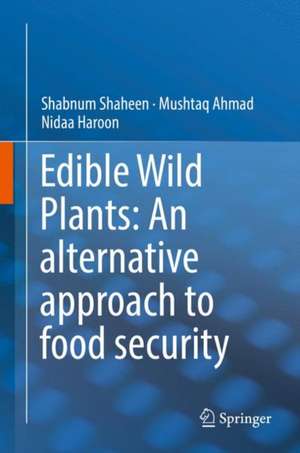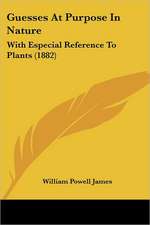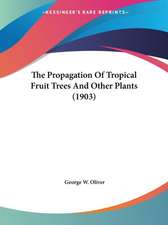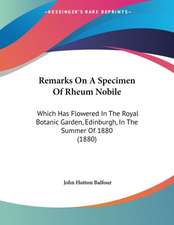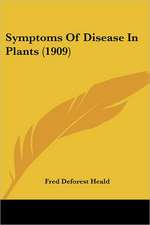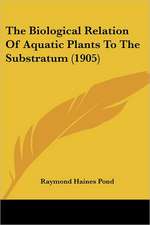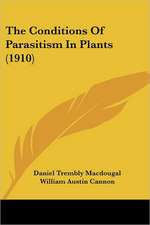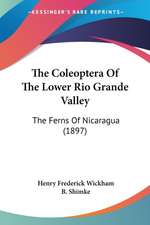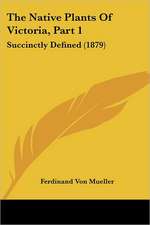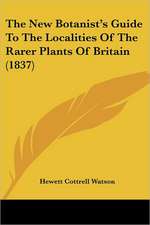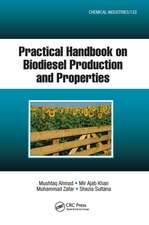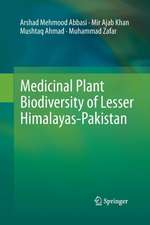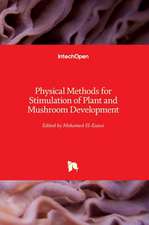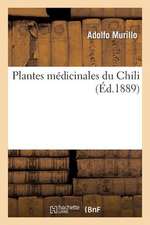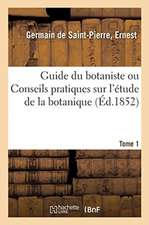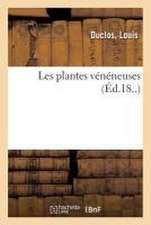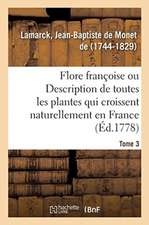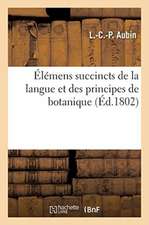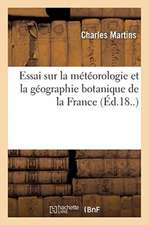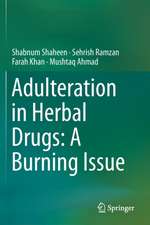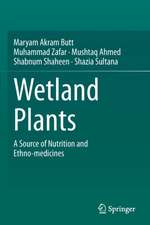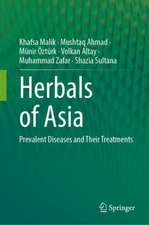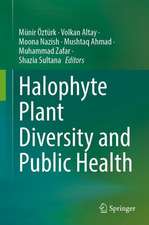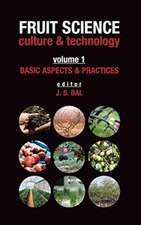Edible Wild Plants: An alternative approach to food security
Autor Shabnum Shaheen, Mushtaq Ahmad, Nidaa Haroonen Limba Engleză Hardback – 8 sep 2017
This text focuses on underutilized wild plants that can help to reduce food deficiency in developing nations. Edible wild plants are viewed as a potential solution for overcoming food insecurity for families in these regions, with a specific focus on sustainable production and conservation measures. Detailed analysis of specific wild plants is provided, including the nutritional contents of each plant. A full list of edible wild plants is included for the benefit of researchers, plus a pictorial guide for easy identification of these plants. Specific case studies are provided in which edible wild plants are used to reduce food insecurity, and the diversity of edible wild plants is studied from a global perspective.
In developing countries, a significant obstacle to human survival is the increasing gap between food availability and the growing human population. Food insecurity results in less consumption of fruits and vegetables and leads to mineral and vitamin deficiency for individuals in these regions. Edible Wild plants: An alternative approach to food security focuses on growing and using wild plants in order to reduce food insecurity and malnutrition. Wild edible plants are inexpensive and are a rich source of antioxidants, vitamins, fiber, and minerals. As the first book to specifically focus on edible wild plants and their vital role in food security and nutrition, this text is incredibly valuable to any researcher studying innovative potential solutions to food deficiency in the developing world.
In developing countries, a significant obstacle to human survival is the increasing gap between food availability and the growing human population. Food insecurity results in less consumption of fruits and vegetables and leads to mineral and vitamin deficiency for individuals in these regions. Edible Wild plants: An alternative approach to food security focuses on growing and using wild plants in order to reduce food insecurity and malnutrition. Wild edible plants are inexpensive and are a rich source of antioxidants, vitamins, fiber, and minerals. As the first book to specifically focus on edible wild plants and their vital role in food security and nutrition, this text is incredibly valuable to any researcher studying innovative potential solutions to food deficiency in the developing world.
| Toate formatele și edițiile | Preț | Express |
|---|---|---|
| Paperback (1) | 551.31 lei 38-44 zile | |
| Springer International Publishing – 11 aug 2018 | 551.31 lei 38-44 zile | |
| Hardback (1) | 642.03 lei 6-8 săpt. | |
| Springer International Publishing – 8 sep 2017 | 642.03 lei 6-8 săpt. |
Preț: 642.03 lei
Preț vechi: 755.33 lei
-15% Nou
Puncte Express: 963
Preț estimativ în valută:
122.85€ • 126.74$ • 102.52£
122.85€ • 126.74$ • 102.52£
Carte tipărită la comandă
Livrare economică 26 martie-09 aprilie
Preluare comenzi: 021 569.72.76
Specificații
ISBN-13: 9783319630366
ISBN-10: 3319630369
Pagini: 183
Ilustrații: XVIII, 183 p. 107 illus. in color.
Dimensiuni: 155 x 235 mm
Greutate: 0.46 kg
Ediția:1st ed. 2017
Editura: Springer International Publishing
Colecția Springer
Locul publicării:Cham, Switzerland
ISBN-10: 3319630369
Pagini: 183
Ilustrații: XVIII, 183 p. 107 illus. in color.
Dimensiuni: 155 x 235 mm
Greutate: 0.46 kg
Ediția:1st ed. 2017
Editura: Springer International Publishing
Colecția Springer
Locul publicării:Cham, Switzerland
Cuprins
Food security: A Global problem.- Edible wild plants: A solution to overcome Food Insecurity.- Diversity of Edible wild Plants: Global perspectives.- Status of Edible wild Plants in Pakistan: Case studies.- Nutritional contents and analysis of edible wild plants.- List of useful edible wild plants for daily use.- A pictorial guide to edible wild plants.- Conservation measures and sustainable production of edible wild plants.- Glossary.- Bibliography.
Notă biografică
Dr. Shabnum Shaheen is an Assistant Professor at Lahore College for Women University in Lahore, Pakistan
Dr Mushtaq Ahmad is an Associate Professor in the Department of Plant Sciences at Quaid-I Azam University in Islamabad, Pakistan
Nida Haroon is a PhD scholar at Lahore College for Women University in Lahore, Pakistan
Dr Mushtaq Ahmad is an Associate Professor in the Department of Plant Sciences at Quaid-I Azam University in Islamabad, Pakistan
Nida Haroon is a PhD scholar at Lahore College for Women University in Lahore, Pakistan
Textul de pe ultima copertă
This text focuses on underutilized wild plants that can help to reduce food deficiency in developing nations. Edible wild plants are viewed as a potential solution for overcoming food insecurity for families in these regions, with a specific focus on sustainable production and conservation measures. Detailed analysis of specific wild plants is provided, including the nutritional contents of each plant. A full list of edible wild plants is included for the benefit of researchers, plus a pictorial guide for easy identification of these plants. Specific case studies are provided in which edible wild plants are used to reduce food insecurity, and the diversity of edible wild plants is studied from a global perspective.
In developing countries, a significant obstacle to human survival is the increasing gap between food availability and the growing human population. Food insecurity results in less consumption of fruits and vegetables and leads to mineral and vitamin deficiency forindividuals in these regions. Edible Wild plants: An alternative approach to food security focuses on growing and using wild plants in order to reduce food insecurity and malnutrition. Wild edible plants are inexpensive and are a rich source of antioxidants, vitamins, fiber, and minerals. As the first book to specifically focus on edible wild plants and their vital role in food security and nutrition, this text is incredibly valuable to any researcher studying innovative potential solutions to food deficiency in the developing world.
In developing countries, a significant obstacle to human survival is the increasing gap between food availability and the growing human population. Food insecurity results in less consumption of fruits and vegetables and leads to mineral and vitamin deficiency forindividuals in these regions. Edible Wild plants: An alternative approach to food security focuses on growing and using wild plants in order to reduce food insecurity and malnutrition. Wild edible plants are inexpensive and are a rich source of antioxidants, vitamins, fiber, and minerals. As the first book to specifically focus on edible wild plants and their vital role in food security and nutrition, this text is incredibly valuable to any researcher studying innovative potential solutions to food deficiency in the developing world.
Caracteristici
Provides a unique and comprehensive overview of the use of edible wild plants to reduce food shortage and increase nutrition in developing nations Thoroughly covers the different types of edible wild plants in regions across the globe, focusing on how these plants can be utilized to increase food security in these regions Focuses on the diversity of edible wild plants from a global perspective, with emphasis on proper preservation and harvesting techniques Includes supplementary material: sn.pub/extras
